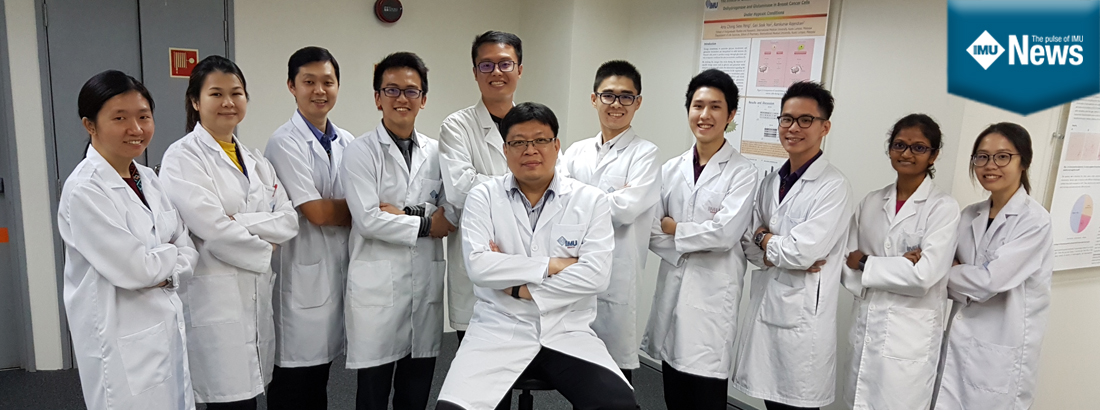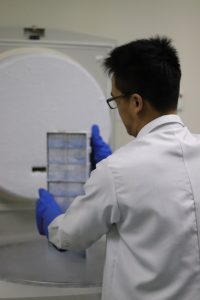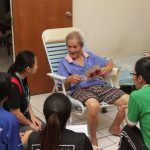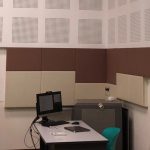The future of drug discovery relies on finding solutions for complex unmet medical needs. Unfortunately, the discovery process is often time consuming, technically challenging, and filled with obstacles on access to facilities, not to mention the high cost involved. With that, Centre for Cancer and Stem Cells Research of the Institute for Research, Development and Innovation (IRDI), International Medical University (IMU) has initiated the Collaborative Drug Discovery (CDD) Programme. The aim of the CDD programme is to lower the barriers between investigators from different organisations and connect the investigators with science to find compounds that may become medicines. The programme serves as a collaborative and networking platform between researchers and biotechnology industries where they all have access to disease-relevant and target-based assays. The programme is pioneered by Prof Leong Chee Onn and Dr Mai Chun Wai, with unfailing support from researchers in IMU. 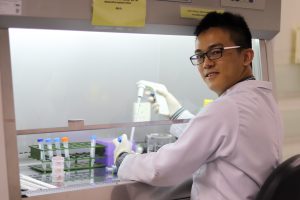 The coordinator of this programme who is also the Head of Centre for Cancer and Stem Cells Research, Dr Mai Chun Wai shared “it is fascinating to discover the medicinal potential of all these powders. I am very glad to have strong support from collaborators across the globe!” Dr Mai has been invited to share about this initiative at various national and international conferences. Recently, Dr Mai had the opportunity to share the CDD programme with thousands of pharmacists around world when he was in United Kingdom as one of the 10 recipients of International Pharmaceutical Federation (FIP) World Congress Travel award. (Read more about this at IMU School of Pharmacy Lecturer Secured International Travel Award to United Kingdom). He was also invited to share this great initiative at various institutions, namely but not limited to Universiti Malaya (UM), Universiti Kebangsaan Malaysia (UKM), Universiti Teknologi MARA (UiTM) and Institute Medical Research (IMR).
The coordinator of this programme who is also the Head of Centre for Cancer and Stem Cells Research, Dr Mai Chun Wai shared “it is fascinating to discover the medicinal potential of all these powders. I am very glad to have strong support from collaborators across the globe!” Dr Mai has been invited to share about this initiative at various national and international conferences. Recently, Dr Mai had the opportunity to share the CDD programme with thousands of pharmacists around world when he was in United Kingdom as one of the 10 recipients of International Pharmaceutical Federation (FIP) World Congress Travel award. (Read more about this at IMU School of Pharmacy Lecturer Secured International Travel Award to United Kingdom). He was also invited to share this great initiative at various institutions, namely but not limited to Universiti Malaya (UM), Universiti Kebangsaan Malaysia (UKM), Universiti Teknologi MARA (UiTM) and Institute Medical Research (IMR).
The team has been actively publishing their findings in international reputable scientific journals, namely Journal of Natural Products, European Journal of Medicinal Chemistry, Cancer Letters, Records of Natural Products, Phytochemistry Letters, Phytotherapy Research, Chemical Biology & Drug Design, Scientific Reports, PLoS ONE, Medicinal Chemistry Research, and Frontiers in Pharmacology. For this programme, IRDI facilitates the research of a new compound through its engineered-cell-based model that provides highly reliable results within a short time frame. It is a robust and reliable technique that will quicken the steps in discovering potential new drugs, especially when it comes to critical diseases. The CDD screening panel is comprised of a series of screening modules which are relevant to therapeutic area of long-term strategic interest in the medicine, including cancers, neurological disorders, infectious diseases, and metabolic diseases. It is also worth mentioning that the team of researchers can kill a few birds with one stone by testing a given compound on a few different areas simultaneously: anti-cancer, anti-bacterial, anti-inflammatory, reaction against cholesterol, diabetic marker as well as a toxicity tests. One of the most important features of this programme is that the intellectual property (IP) rights of the compounds supplied are shared with the creator. The other features and benefits of the programme include:
| IRDI provides access to internal screening assays for external investigators as an in-kind contribution to their research. |
|---|
| The CDD panels include disease-relevant phenotypic disease models and state-of-the-art target-based assays. |
| Confidential compound submission processes. |
| Full data report provided to investigator at the end of screening. |
| Access to highly relevant screening assays and publication-quality biological data to test hypotheses. |
| Promising findings can serve as basis for a collaboration agreement with IRDI. |
The CDD programme is the first of its kind in the Asian region and the aim of the programme is to contribute to the advancement of medical sciences and for the betterment of the human health. At present, the programme has attracted many national and international collaborators. The programme is open to all collaborators from academicians to the industry partners. For more information, please contact [email protected].
| About IRDI |
|---|
| Established in 2012 in accordance to the International Medical University’s (IMU) strategic plan, IRDI’s mission is to be recognised as a leading private research institute in Asia that creates value through integrating education, healthcare and research. Since its inception, IRDI has identified five thrust areas of research namely, cancer and stem cell research, environmental and population health, bioactive molecules and drug delivery, health professions education, and translational research. |




